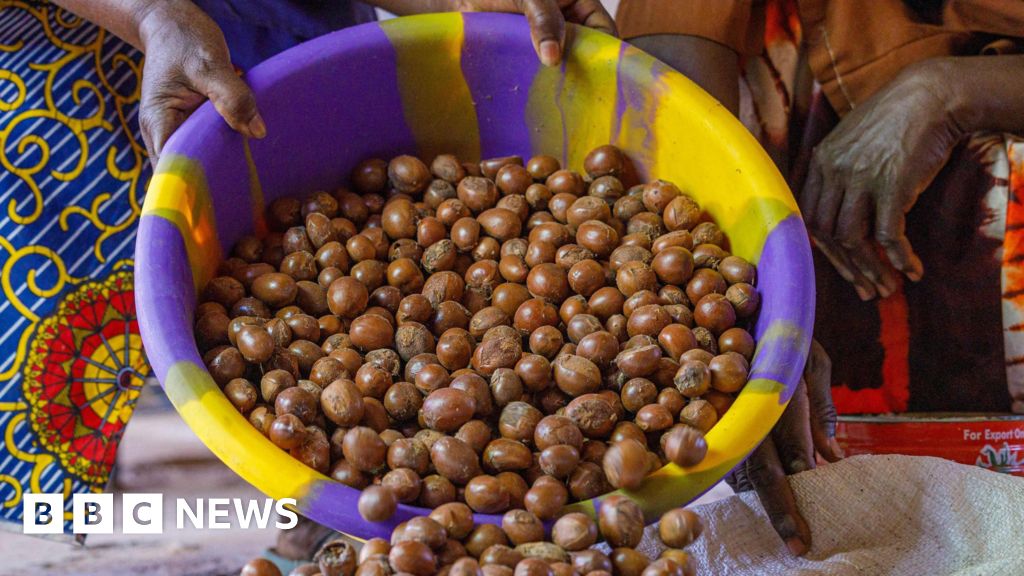Nigeria has announced a six-month ban on the export of raw shea nuts from which many beauty creams are made. The move is aimed at making the trade more lucrative as Nigeria is losing out by not producing much shea butter locally. The country produces nearly 40% of the world's annual crop, but it only accounts for 1% of the $6.5bn (£4.8bn) global market - a situation Vice-President Kashim Shettima described as unacceptable. Harvested fruit from shea nut trees have to be crushed, roasted and boiled to extract their oil to produce the shea butter used in cosmetics. The butter is also used in the food industry in the production of some sweets like chocolate and ice creams - and in pharmaceuticals too. Shea trees grow in the wild from West to East Africa - a vast strip known as the shea belt. Small-scale farmers, often women, also plant and harvest them in these areas. Shettima said the temporary ban would enable Nigeria to move from being an exporter of the raw nuts to a global supplier of refined shea products. The short-term aim, he said, was to see Nigeria's earnings from the fruit of the shea nut trees grow from $65m to $300m annually. Nigeria Agriculture Minister Abubakar Kyari has said the West African nation produces a crop of 350,000 tonnes a year - with nearly 25% of that disappearing over the borders in unregulated informal trade. According to agriculture expert Dr Ahmed Ismail, much of the harvest comes from villages in central Nigeria.}
Nigeria Implements Six-Month Ban on Shea Nut Exports to Boost Local Production

Nigeria Implements Six-Month Ban on Shea Nut Exports to Boost Local Production
In a bold move to enhance its position in the global market, Nigeria has announced a six-month ban on the export of shea nuts, aiming to prioritize local refining and increase earnings from this valuable crop.
Nigeria, the world's leading producer of shea nuts, has instituted a six-month ban on the export of these nuts to bolster local production of shea butter and increase its share in the global market, which is currently dominated by other countries despite Nigeria providing a significant portion of the world's shea nuts.



















